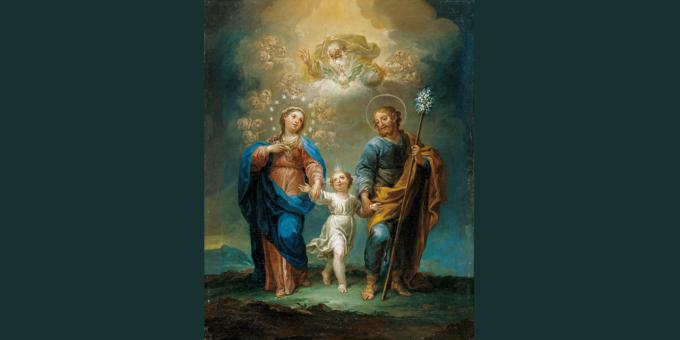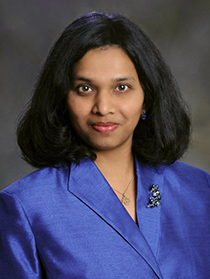
Faith

The Catechism of the Catholic Church explains the Trinitarian meaning of the Eucharist as thanksgiving and praise to the Father, as the sacrificial memorial of Jesus and his body, and the ongoing presence of the Holy Spirit in the power of Jesus' real presence.

Sullivan
Ex 24:3-8
Ps 116:12-13, 15-16, 17-18
Heb 9:11-15
Mk 14:12-16, 22-26
"Be what you see, become what you receive!" With these words, the saintly bishop Augustine urged his flock to deepen their understanding of the gift and mystery of the Eucharist. The good bishop reminded the faithful that the Eucharist transforms them into the presence of Jesus, the One they receive. They become the body of Christ as they receive the body of Christ in the Eucharist.
Augustine drew the attention of his flock to the miracles that unfold at every Eucharist. First there is the transubstantiation of bread and wine into the body and blood of Jesus in the power of the Holy Spirit. The other, equally important, miracle was the transfiguration of those who receive the Lord into his living presence in the world. Just as bread and wine are changed into the body and blood of Jesus in the Holy Spirit, we who receive the Lord are meant to be changed to reflect his loving presence in the world.
The bishops of the Second Vatican Council noted that the Eucharist is the "source and summit of the Christian life." Everything the church is and does finds its foundation and goal in the Eucharist. The Eucharist makes the church, and the church makes the Eucharist. As St. Paul writes, "The cup of blessing that we bless, is it not a participation in the blood of Christ? The bread that we break, is it not a participation in the body of Christ? Because the loaf of bread is one, we, though, many, are one body, for we all partake of the one loaf."
As Jesus nourishes us with his body and blood, we are united to the Father, the Son, and the Holy Spirit and to the community of believers. When we receive the Eucharist, we partake of and become the "living bread that came down from heaven," that Jesus is for the life of the world. The Eucharist is spiritual food that strengthens with nothing less than the eternal life promised by Jesus when he said that "whoever eats my flesh and drinks my blood has eternal life."
This unmerited gift invites profound "Eucharistic amazement" that God desires to live within us in the Eucharistic mystery of his body and blood!
The Catechism of the Catholic Church explains the Trinitarian meaning of the Eucharist as thanksgiving and praise to the Father, as the sacrificial memorial of Jesus and his body, and the ongoing presence of the Holy Spirit in the power of Jesus' real presence. In the power of the Holy Spirit, we encounter Jesus present in the Eucharistic species of bread and wine, present in the minister who acts in the person of Christ the head, present in the sacred word of God proclaimed and present in the assembly gathered to worship God. In the Eucharistic encounter with Jesus, the word of the psalmist becomes our prayer, "I will take the cup of salvation, and call on the name of the Lord."
This year, the bishops of the United States are continuing to lead the faithful in a National Eucharistic Revival to rediscover the gift and mystery of the Eucharist as spiritual nourishment for the journey of faith. On this Solemnity of the Body and Blood, may our love of the Eucharist deepen so we can pray in gratitude and in faith, "speak to me, Lord."
Question: What does Jesus' gift of himself in the Eucharist mean to you today?
- Jem Sullivan holds a doctorate in religious education and is an associate professor of Catechetics in the School of Theology and Religious Studies at The Catholic University of America in Washington, D.C.
Recent articles in the Faith & Family section
-
Our Lady of DeliveranceJaymie Stuart Wolfe
-
The 'month of the dead' brings its own strange refreshmentBishop Robert Reed
-
Make New Friends, But Keep the OldMaureen Crowley Heil
-
A royal truthScott Hahn
-
St. Cecilia and hope in sacred songRichard Clark


















